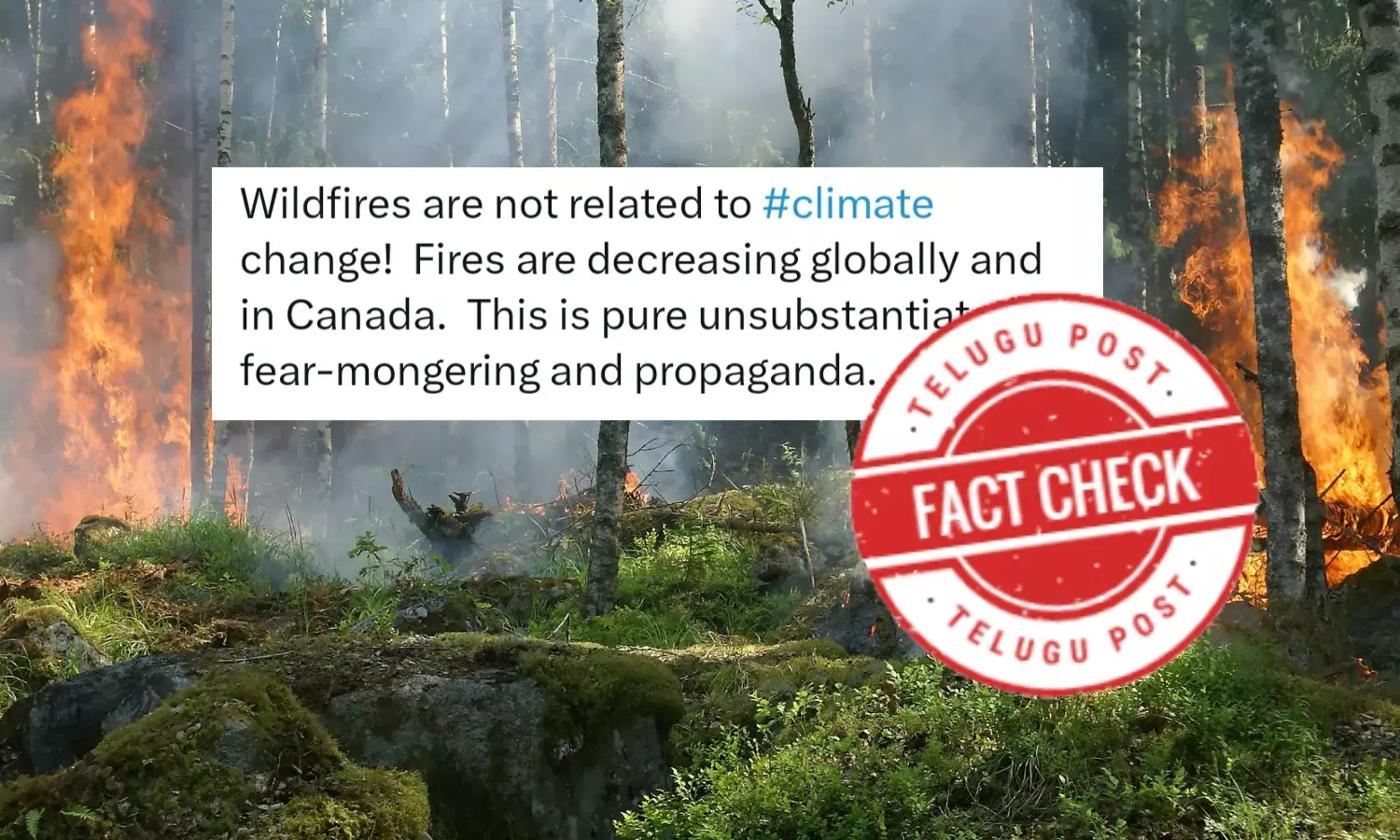Fact Check: Wildfires endanger lives, devastate ecosystems leading to climate change
Wildfires endanger lives, harm ecosystems, and contaminate air, water, and land with smoke, leaving lasting impacts on the environment and communities.;

Wildfire on climate change
Extreme weather events have always been a part of Earth's natural climate variability. The atmosphere is an intricate and ever-changing system shaped by various interacting factors that sustain our ecosystem. However, the impact of global warming is expected to significantly amplify these effects. Current scientific understanding confirms that human activities have played a role in altering the frequency and intensity of extreme weather events.
Meanwhile, some social media users have claimed that wildfires are unrelated to climate change, asserting that fires are decreasing globally. They argue that concerns about wildfires are unfounded fear-mongering and propaganda.
Fact Check:
The claim is false. Wildfires threaten lives it and can damage ecosystems, apart from polluting air & water.
Heatwaves are becoming longer, more intense, and more frequent due to climate change. The burning of fossil fuels releases greenhouse gases, such as carbon dioxide, which trap heat in the atmosphere. As emissions increase, more heat is retained, pushing global warming further and intensifying extreme weather patterns.
Over the past two decades, scientists have conducted 152 studies analyzing extreme weather events. Of these, 93 per cent found that human-driven climate changes had increased the likelihood or severity of extreme heat events.
According to an article published in Chatham House, the June 2024 heatwave in the US, Mexico and Central America was made 35 times more likely and 1.4°C warmer because of climate change.
Heatwaves can trigger a domino effect of impacts. Extreme heat can lead to droughts, wildfires, poor air quality, water and food insecurity, and power shortages, devastating communities worldwide.
It is estimated that wildfires in Canada in 2023 burned 7.8 million hectares of land and released 3 billion tonne of carbon dioxide, generating air pollution that reached as far as Europe and China. The released carbon dioxide can contribute to future heatwaves and create a dangerous feedback loop.
Wildfires and climate change are closely linked, as rising temperatures, prolonged droughts, and shifting weather patterns create dry, flammable conditions that fuel more frequent and intense fires.
As per article published in NOAA, research shows that changes in climate create warmer, drier conditions, leading to longer and more active fire seasons. Increases in temperatures and the thirst of the atmosphere due to human-caused climate change have increased aridity of forest fuels during the fire season. These drivers were found to be responsible for over half the observed decrease in the moisture content of fuels in western U.S. forests from 1979 to 2015, and the doubling of forest fire burned area over the period 1984–2015. For much of the U.S. West, projections show offsite link that an average annual 1 degree Centigrade temperature increase would increase the median burned area per year by as much as 600 % offsite link in some types of forests. In the Southeastern United States, studies suggest increased fire risk and a longer fire season, with at least a 30 percent increase from 2011 in the area burned by lightning-ignited wildfire by 2060.
A social media user shared that 95% of California wildfires are caused by humans, not climate change. She shared the text along with a statistical data.
Hence, we found the claims false. Wildfires endanger lives, harm ecosystems, and contaminate air, water, and land with smoke, leaving lasting impacts on the environment and communities.

